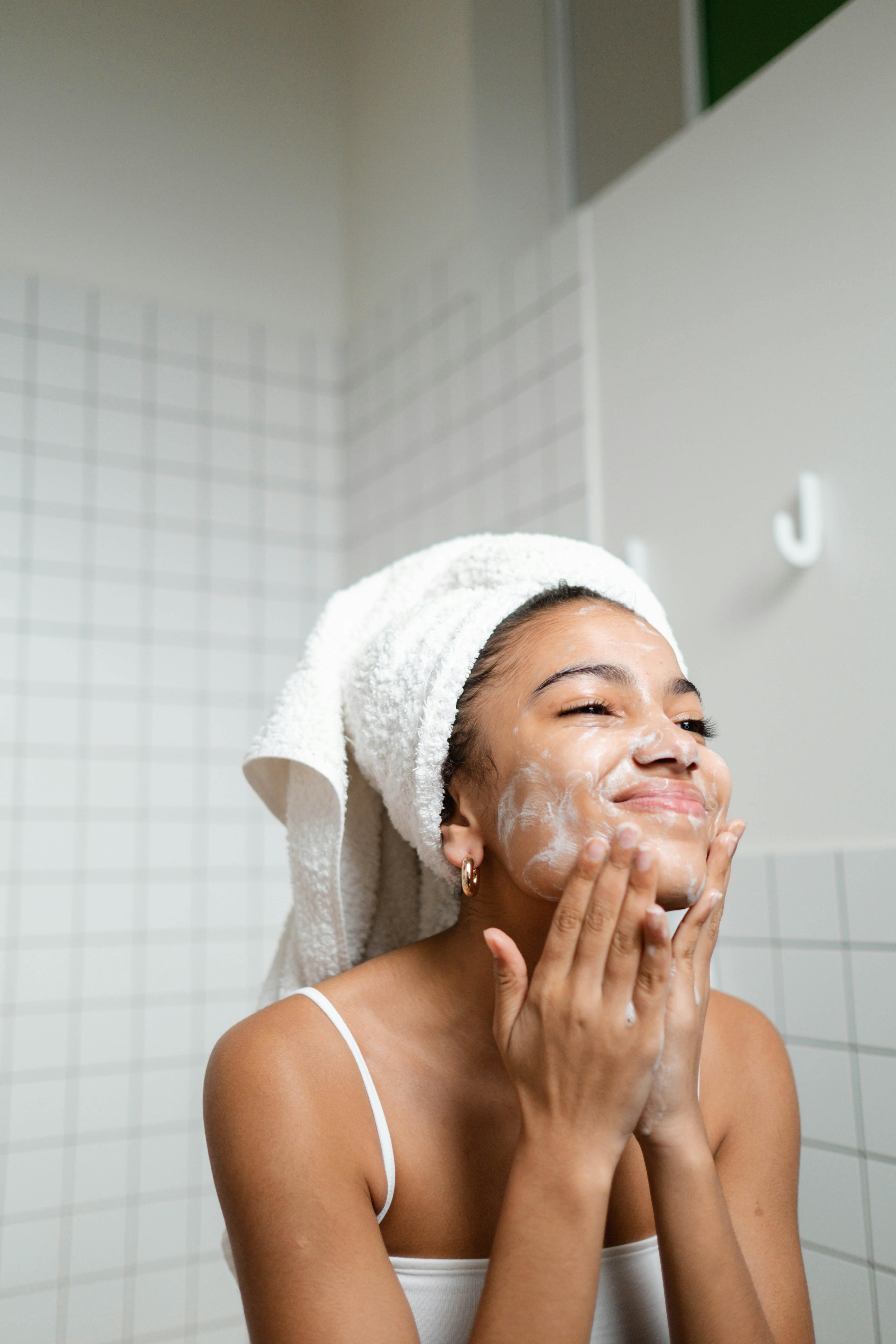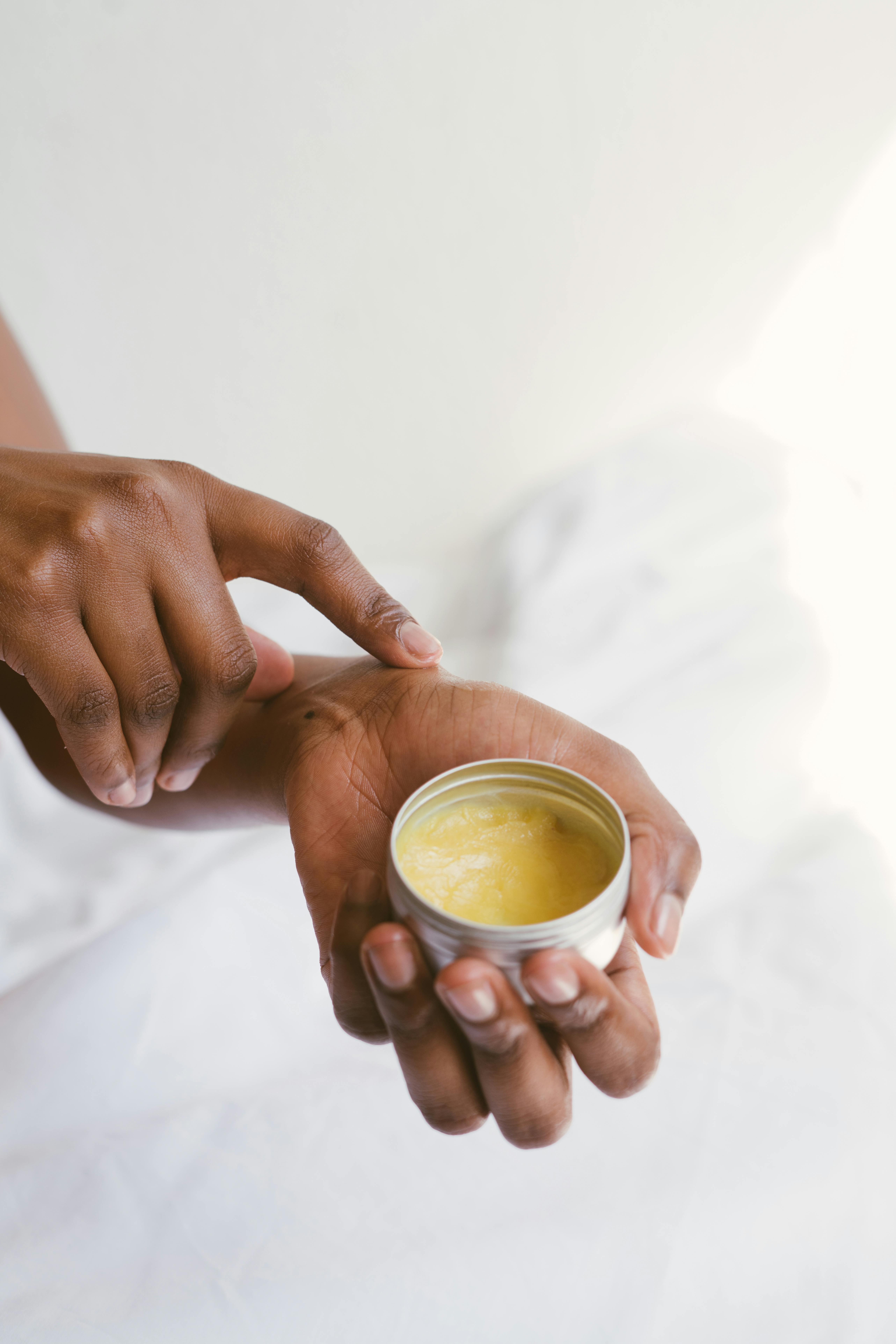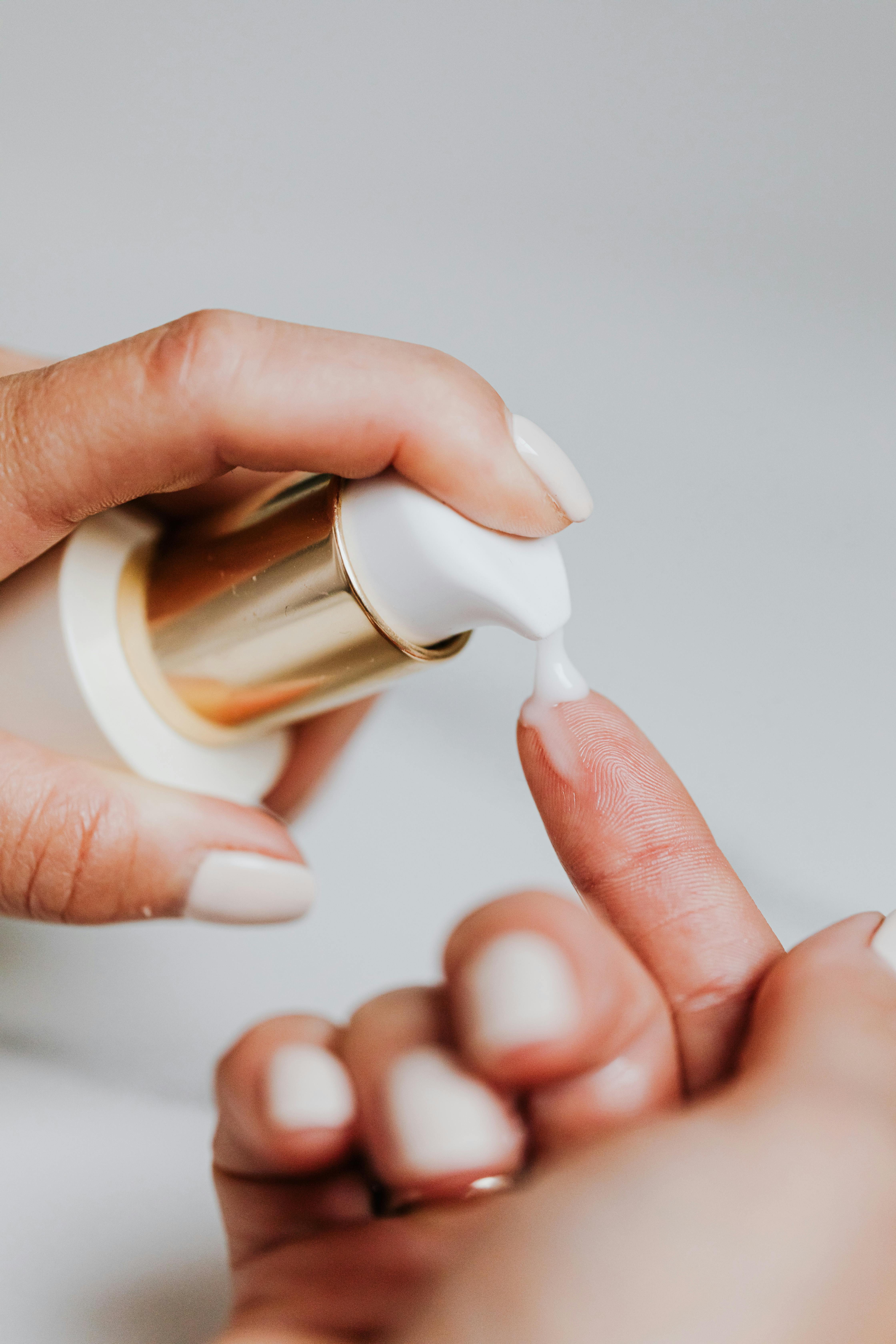Views: 0
Have you ever struggled with acne and wondered how to get rid of it naturally? Well, look no further! In this article, we will explore some simple yet effective ways to banish acne without relying on harsh chemicals or expensive treatments. From lifestyle changes to DIY remedies, we’ve got you covered on your journey to clear and glowing skin. Say goodbye to acne and hello to a more confident you!

Understanding Acne
What is acne?
Acne is a common skin condition that affects many individuals worldwide. It is characterized by the presence of pimples, blackheads, whiteheads, and occasionally, deeper lumps or cysts on the skin. Acne usually occurs on the face, but it can also affect the chest, back, and other areas of the body. It is often seen in teenagers due to hormonal changes, but it can affect people of all ages.
Causes of acne
Several factors contribute to the development of acne. Hormonal changes, especially during puberty, can increase oil production in the skin, leading to clogged pores. Excess oil, bacteria, and dead skin cells can accumulate in these clogged pores, resulting in the formation of pimples. Other factors that can contribute to acne include genetics, certain medications, and high levels of stress.
Types of acne
There are different types of acne, each with its own characteristics. The most common types include:
- Whiteheads: These are small, flesh-colored bumps that occur when pores become clogged with oil and dead skin cells. The pore remains closed, and the bump appears as a small bump on the surface of the skin.
- Blackheads: Similar to whiteheads, blackheads occur when pores become clogged. However, the pore remains open, allowing the trapped oil and dead skin cells to oxidize, giving them a black appearance.
- Papules: These are small, raised bumps that are usually pink or red in color. They occur when the walls of the pores become inflamed.
- Pustules: Pustules are similar to papules, but they have a white or yellow center filled with pus. They are often larger and more inflamed than papules.
- Nodules: Nodules are larger, solid, and painful lumps that develop deep within the skin. They can be red or skin-colored, and they often persist for weeks or months.
- Cysts: Cysts are similar to nodules but are filled with pus. They are larger and more painful than other types of acne lesions and can often lead to scarring.
Maintaining a Healthy Lifestyle
Balanced diet
Maintaining a balanced diet is essential for overall health and contributes to healthier skin. Eating a variety of fruits, vegetables, whole grains, and lean proteins can provide the body with the necessary nutrients to support cell growth and repair. It is also important to avoid highly processed foods, sugary snacks, and excessive consumption of dairy products, as these can potentially worsen acne symptoms for some individuals.
Drinking plenty of water
Staying hydrated is crucial for maintaining healthy skin. Drinking an adequate amount of water helps to flush out toxins from the body and keep the skin hydrated and supple. It is recommended to drink at least eight glasses of water per day to promote clear and glowing skin.
Regular exercise
Engaging in regular exercise not only benefits your overall health but can also have a positive impact on your skin. Exercise helps promote blood circulation, which can deliver essential nutrients and oxygen to the skin. Additionally, sweating during exercise can help to unclog pores and remove toxins from the skin. Remember to shower promptly after exercising to avoid the accumulation of sweat and bacteria on the skin.
Good sleep habits
Getting enough sleep is essential for your overall well-being, including the health of your skin. When you are sleep-deprived, your body produces more stress hormones, which can lead to an increase in oil production and inflammation in the skin. Aim for 7-9 hours of quality sleep each night to allow your body to repair and rejuvenate its cells, resulting in healthier-looking skin.
Effective Skincare Routine
Gentle cleansing
Cleansing your skin twice a day, in the morning and before bed, is crucial for removing dirt, oil, and bacteria that can contribute to acne. It is important to use a gentle cleanser specifically formulated for acne-prone skin. Avoid using harsh soaps or scrubbing your skin aggressively, as this can irritate the skin and worsen acne symptoms.
Non-comedogenic products
Using non-comedogenic skincare and makeup products is essential for preventing pore blockage. Non-comedogenic products are formulated not to clog the pores, reducing the risk of developing new acne lesions. Look for products labeled as non-comedogenic when choosing moisturizers, sunscreens, and makeup.
Exfoliation
Exfoliating the skin regularly helps to remove dead skin cells and unclog pores, preventing acne breakouts. However, it is important to avoid using harsh exfoliants that can irritate the skin. Instead, opt for gentle exfoliants with ingredients such as salicylic acid or glycolic acid, which can help to unclog pores and smooth the skin’s texture.
Moisturization
Contrary to popular belief, moisturizing is essential even for acne-prone skin. Using a lightweight, oil-free moisturizer can help to balance the skin’s natural moisture levels and prevent excessive dryness. Look for moisturizers that are labeled as non-comedogenic and specifically formulated for acne-prone skin.
Sun protection
Protecting your skin from the harmful effects of the sun is crucial for maintaining healthy skin and preventing acne scarring. Choose a broad-spectrum sunscreen with an SPF of 30 or higher and apply it daily, even on cloudy days. Sunscreen helps to protect the skin from UV rays, which can worsen acne inflammation and lead to post-inflammatory hyperpigmentation.
Natural Remedies for Acne
Tea tree oil
Tea tree oil is known for its antimicrobial and anti-inflammatory properties, making it an effective natural remedy for acne. It can help to kill acne-causing bacteria and reduce inflammation in the skin. Dilute tea tree oil with a carrier oil, such as coconut oil, and apply it to the affected areas with a cotton swab. Leave it on for a few hours or overnight, then rinse off with water.
Honey and cinnamon mask
Combining honey and cinnamon can create a powerful face mask that can help fight acne. Honey has antibacterial properties, while cinnamon can help to reduce inflammation. Mix equal parts of honey and cinnamon to form a paste, then apply it to your face and leave it on for 10-15 minutes. Rinse off with warm water, and pat your skin dry.
Aloe vera
Aloe vera has soothing and anti-inflammatory properties that can help reduce redness and inflammation associated with acne. Apply a thin layer of pure aloe vera gel to the affected areas and leave it on for approximately 20 minutes before rinsing off. Repeat this process once or twice daily for best results.
Apple cider vinegar
Apple cider vinegar has antimicrobial properties and can help balance the pH levels of the skin, making it a popular natural remedy for acne. Mix equal parts of apple cider vinegar and water, then apply the mixture to the skin using a cotton pad. Leave it on for 5-10 minutes before rinsing off with water. Be cautious when using apple cider vinegar, as it can cause skin irritation if not properly diluted.
Green tea
Green tea contains antioxidants that can help reduce inflammation and fight acne-causing bacteria. Brew a cup of green tea, allow it to cool down, and then apply it to the skin using a cotton pad or spray bottle. Leave it on for 10-15 minutes before rinsing off. Alternatively, you can also drink green tea regularly to enjoy its skin-benefiting properties.
Turmeric
Turmeric has anti-inflammatory and antioxidant properties that can help reduce acne inflammation and promote healing. Create a paste by mixing turmeric powder with water or honey, then apply it to the affected areas. Leave it on for 10-15 minutes before rinsing off. Be cautious, as turmeric can stain the skin temporarily, especially if not properly diluted.

Managing Stress
Relaxation techniques
Stress has been known to worsen acne symptoms, so it’s important to find ways to manage stress effectively. Engaging in relaxation techniques such as deep breathing, meditation, and yoga can help reduce stress levels and promote overall well-being. Taking a few minutes each day to focus on relaxation can have a positive impact on your skin and overall health.
Exercise
Regular exercise not only benefits your physical health but can also help reduce stress levels. Engaging in activities such as jogging, swimming, or practicing your favorite sport can help release endorphins, which are known as “feel-good” hormones. These endorphins can help improve your mood and reduce stress levels, consequently improving the appearance of your skin.
Healthy coping mechanisms
Finding healthy ways to cope with stress is essential for maintaining healthy skin. Instead of turning to unhealthy habits such as smoking, excessive alcohol consumption, or stress eating, try alternatives such as talking to a friend or loved one, practicing journaling, or engaging in a hobby or activity that brings you joy. Finding healthy coping mechanisms can help manage stress levels and prevent acne flare-ups.
Avoiding Harmful Habits
Picking or popping pimples
One of the worst habits for acne-prone skin is picking or popping pimples. While it may be tempting, this can lead to further inflammation, infection, and potential scarring. Instead, opt for spot treatment products or consult a dermatologist for safe and effective extraction methods.
Avoiding harsh chemicals
Using harsh chemicals on the skin can strip away its natural protective barrier and lead to increased oil production and irritation. Avoid using products that contain harsh ingredients such as sulfates, alcohol, and fragrances. Opt for gentle, fragrance-free products specifically formulated for acne-prone skin.
Removing makeup properly
Leaving makeup on overnight can clog pores and contribute to acne breakouts. Make sure to remove all makeup before going to bed using a gentle makeup remover or cleansing oil. Follow up with a gentle cleanser to ensure all residue is removed, allowing your skin to breathe and repair itself while you sleep.

Supplements and Herbs
Zinc
Zinc is an essential mineral that plays a vital role in maintaining healthy skin. Taking zinc supplements or consuming foods rich in zinc, such as oysters, lean meats, nuts, and seeds, can help reduce inflammation and regulate oil production. However, it’s important to consult with a healthcare professional before starting any new supplements.
Vitamin A
Vitamin A, or retinoids, are known for their ability to regulate the skin’s oil production and promote cell turnover. It can be taken as a supplement or applied topically in the form of creams or serums. However, excessive vitamin A intake can be harmful, so consult with a healthcare professional to determine the appropriate dosage.
Omega-3 fatty acids
Omega-3 fatty acids have anti-inflammatory properties that can help reduce acne inflammation. Consuming foods rich in omega-3 fatty acids, such as fatty fish, walnuts, and flaxseeds, or taking fish oil supplements can potentially improve acne symptoms and promote healthier-looking skin.
Burdock root
Burdock root is a popular herb known for its detoxifying properties and ability to improve skin health. It can be consumed as a tea or taken as a supplement in capsule form. Burdock root can help cleanse the blood, remove toxins, and reduce inflammation, thereby reducing the occurrence of acne breakouts.
Evening primrose oil
Evening primrose oil is derived from the seeds of the evening primrose plant and is rich in essential fatty acids. It can help regulate hormonal imbalances that may contribute to acne breakouts. Evening primrose oil can be taken orally or applied topically to the skin to promote a clearer complexion.
Home Remedies for Acne Scars
Lemon juice
Lemon juice is a natural remedy that can help reduce the appearance of acne scars due to its high vitamin C content. Dilute lemon juice with water and apply it to the affected areas using a cotton pad. Leave it on for 10-15 minutes, then rinse off. It is important to note that lemon juice may cause skin irritation or sensitivity, so it’s best to do a patch test and consult with a healthcare professional if necessary.
Coconut oil
Coconut oil has moisturizing and healing properties that can help fade acne scars over time. Apply a small amount of organic, unrefined coconut oil to the affected areas and massage gently in circular motions. Leave it on overnight, or for at least 30 minutes, before washing it off. Be cautious when using coconut oil on the face, as it can be comedogenic for some individuals.
Rosehip seed oil
Rosehip seed oil is rich in essential fatty acids and antioxidants that can promote skin regeneration and reduce the appearance of acne scars. Apply a few drops of rosehip seed oil to the affected areas and massage gently until absorbed. Leave it on overnight, or for at least 30 minutes, before rinsing off.
Honey
Honey has antibacterial and healing properties that can help reduce the appearance of acne scars. Apply a thin layer of raw honey to the affected areas and leave it on for 10-15 minutes. Rinse off with warm water, and pat your skin dry. Repeat this process regularly to see the best results.
Cucumber
Cucumber has a soothing and cooling effect on the skin, making it beneficial for reducing the appearance of acne scars. Blend a cucumber into a paste and apply it to the affected areas. Leave it on for 10-15 minutes, then rinse off with cool water. Regular use of cucumber can help fade acne scars and leave your skin feeling refreshed.
When to Seek Professional Help
Persistent or severe acne
If you have tried various home remedies and over-the-counter treatments but your acne persists or worsens, it may be time to seek professional help. Dermatologists can provide targeted treatments, such as prescription medications or in-office procedures, to help control and manage your acne.
Emotional distress
Acne can have a significant impact on your mental and emotional well-being. If your acne is causing you emotional distress, it is important to reach out to a healthcare professional, such as a dermatologist or mental health counselor, who can provide support and guidance.
Acne affecting daily life
If acne is significantly affecting your daily life, such as your self-esteem, social interactions, or ability to participate in activities you enjoy, it is advisable to seek professional help. A healthcare professional can help develop a personalized treatment plan to address your specific needs and improve your quality of life.
Final Thoughts
Consistency is key
When it comes to managing acne, consistency is key. It takes time for skincare products and lifestyle changes to take effect, so be patient and stick to your routine. It may take several weeks or even months to see noticeable improvements in your skin.
Give it time
Natural remedies and lifestyle changes can be effective for managing acne, but results may vary for each individual. Give these remedies enough time to work and make adjustments to your routine as necessary. If you experience any negative reactions or worsening of your skin condition, discontinue use and consult with a healthcare professional.
Everyone’s skin is different.
It is important to remember that everyone’s skin is unique, and what works for one person may not work for another. It may take some trial and error to find the right combination of skincare products and lifestyle changes that work best for your skin. Be patient, and don’t be afraid to seek professional advice if needed. With time, dedication, and a bit of experimentation, you can effectively manage and reduce acne naturally.








